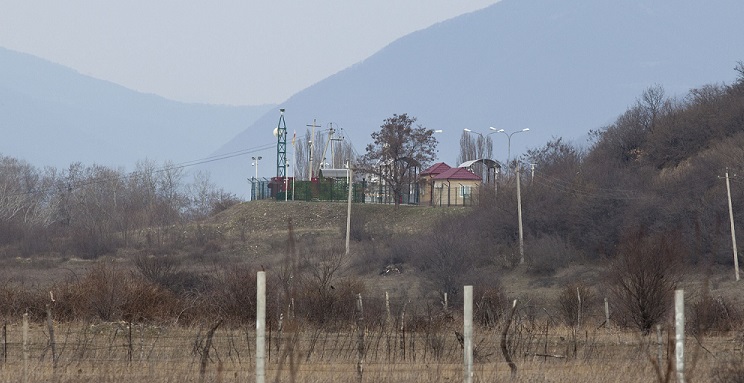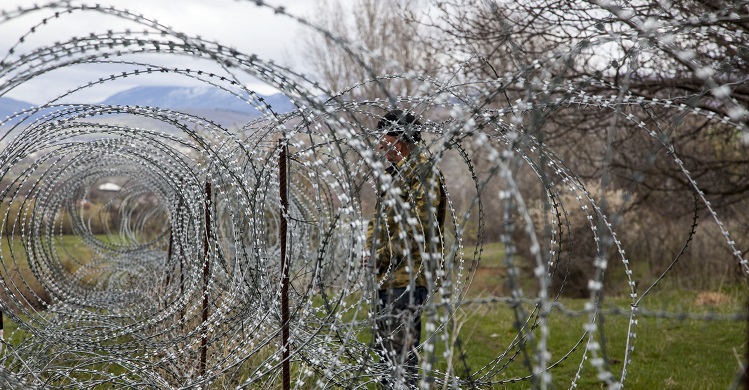Georgia’s occupied Tskhinvali region tightens rules to address ‘illegal border crossings’

The de facto government of Tskhinvali says they detained 164 for ‘illegally crossing the border” in the first six months of 2019. Photo: Nino Alavidze/Agenda.ge.
The de facto leadership of Georgia’s eastern occupied Tskhinvali (South Ossetia) region says that ‘illegal border crossings’ between Georgia and the region have increased more than two times in the first half of 2019 compared to the same period of the last year.
As of June 24, 2019, 164 individuals have been held accountable for violating the border rules, while the figure stood at 78 in the same period of 2018,” the so-called State Security Committee of Tskhinvali reports.
The agency says that the rules for crossing the so-called border have become tougher, demanding all the locals to have identification documents with them if they decide to temporarily leave the region.
If the locals of Tskhinvali decide to conduct economic activity at “border areas”, they must notify the so-called security agency beforehand.
 Georgia says that the de facto governments of Georgian regions and Russia do their utmost to make the lives of locals more complicated. Photo: Nino Alavidze/Agenda.ge.
Georgia says that the de facto governments of Georgian regions and Russia do their utmost to make the lives of locals more complicated. Photo: Nino Alavidze/Agenda.ge.
If locals have to host people from other regions of Georgia, they will have to notify the same agency about the visits for the so-called security committee to allow passes for the visitors.
Georgian officials have stated that all the restrictions imposed by the de facto authorities and Russia in the region complicate the everyday lives of locals and worsens humanitarian situation there, as locals are in much need to have contacts with other regions of the country to meet their daily necessities.
Russia recognised the two Georgian regions of Abkhazia and Tskhinvali (South Ossetia) as independent states after the Russia-Georgia 2008 war.
Only Venezuela, Nicaragua, Nauru and Syria have taken the same step of recognition so far.
The rest of the international community says that the regions are occupied by Russia and urge the country to withdraw its troops from Georgian territory.
 Tweet
Tweet  Share
Share